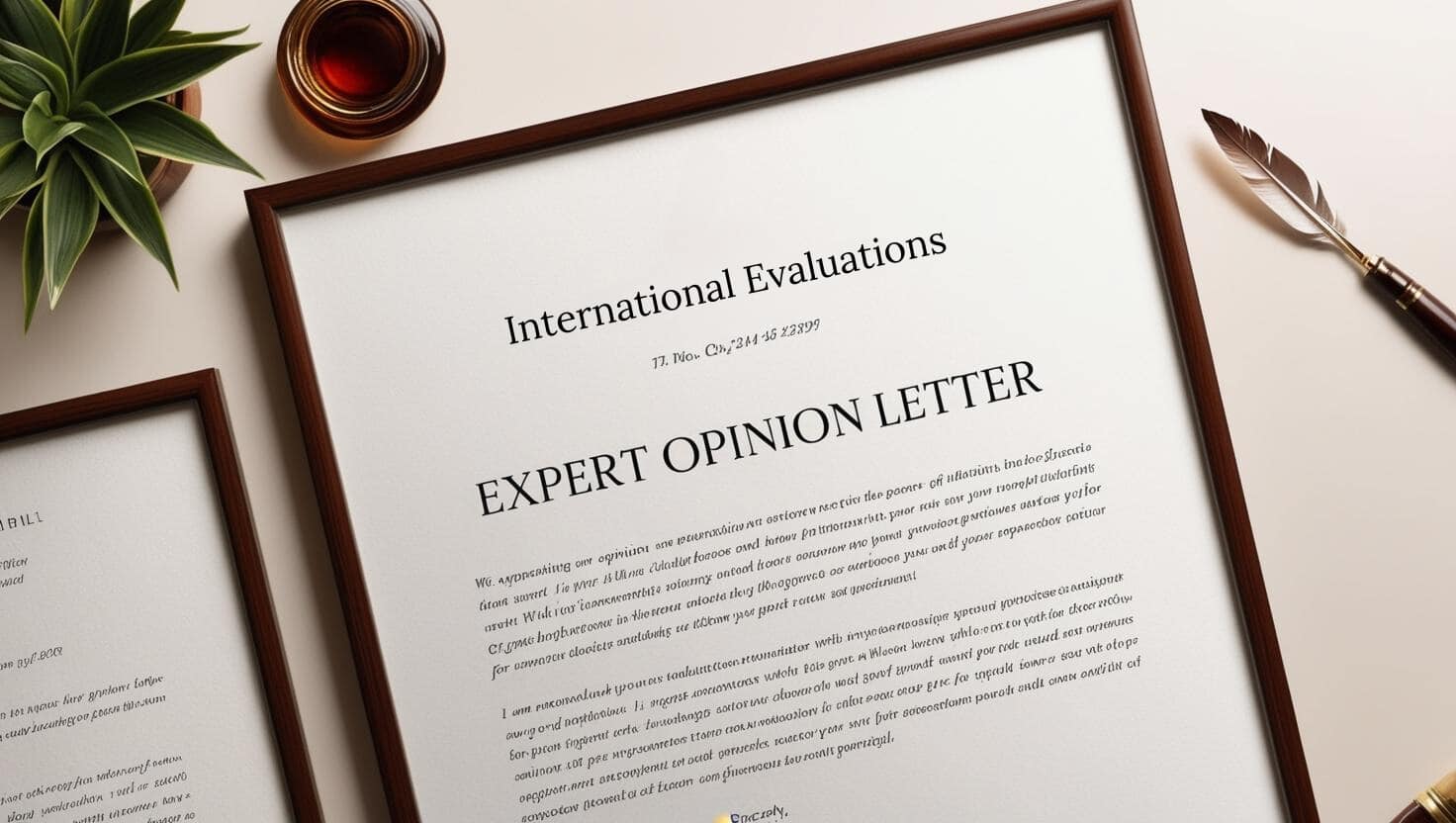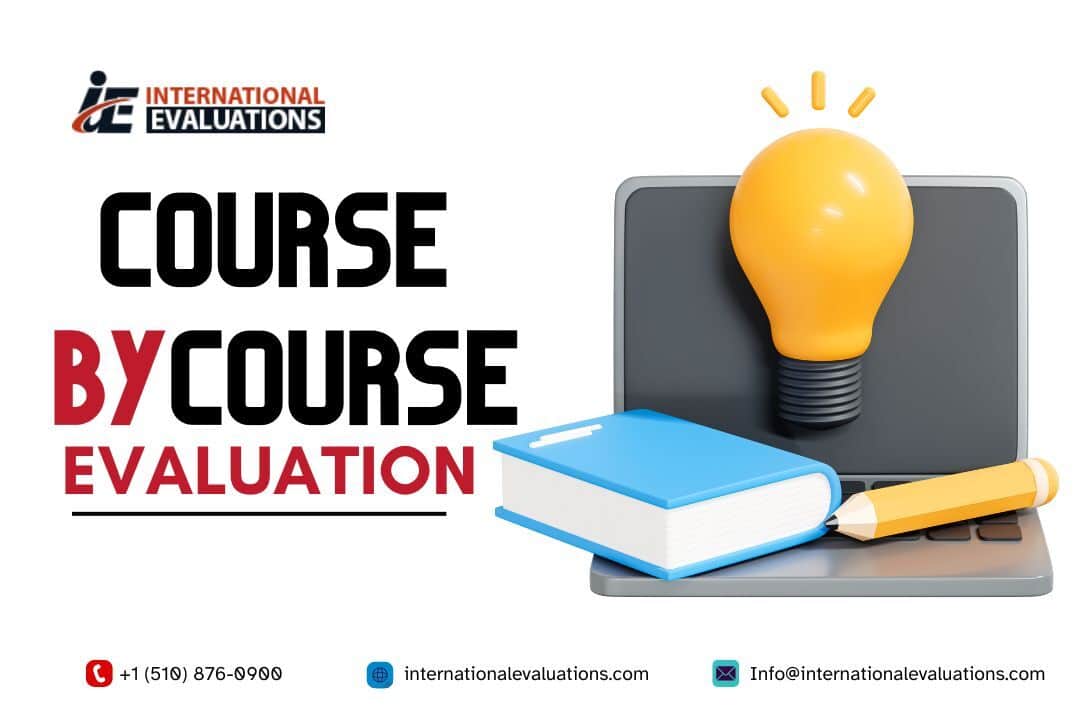Introduction
In our progressively globalized world, the importance of instructional certifications can differ dramatically from one country to another. As organizations and educational institutions make every effort to embrace diversity, understanding global qualifications has actually ended up being an important necessity. This is where international credential assessment services action in. These services help in equating foreign certifications into formats that are understandable and acceptable within various contexts, thus making it possible for people to harness their full prospective no matter where they come from.
Credential examination is not simply a governmental procedure; it's a vital tool that fosters inclusivity and variety. By verifying academic records, work experiences, and expert achievements through different approaches-- such as course-by-course credential evaluation and work experience evaluation-- these services ensure that certified people receive the acknowledgment they deserve.
In this comprehensive article, we will dig deeply into the various aspects of international credential assessment services, explore its role in accepting variety, and offer insight into how these evaluations are carried out. So, let's start this journey to understand how we can develop a more inclusive society through reliable credential evaluation.
Understanding Academic Credential Evaluation
What Is Academic Credential Evaluation?
Academic credential evaluation is the procedure of examining and analyzing instructional certifications acquired from foreign organizations. This assessment helps companies, universities, licensing boards, and other entities comprehend what a candidate's qualifications indicate in their particular context.

Why Is It Necessary?
The necessity for academic credential examinations originates from the globalization of education and employment. With individuals moving for better opportunities or seeking education abroad, it becomes important to have a standardized method for examining their qualifications.
The Function of International Credential Evaluation Services
International credential evaluation services focus on providing evaluations that are acknowledged worldwide. They consider different aspects such as:
- Institutional Recognition: Evaluators inspect if the issuing organization is accredited. Program Content: Understanding course material to identify equivalency. Duration of Study: How long was the program? Was it part-time or full-time?
These aspects contribute considerably to delivering precise evaluations.
Types of Credential Evaluations Offered
Course-by-Course Credential Evaluation
One of the most detailed forms of evaluation is a course-by-course credential evaluation, which breaks down each course taken throughout an individual's studies. This type of assessment assists in:
- Determining equivalent courses in the U.S. Assigning credit hours for each course. Providing detailed info about grades received.
Work Experience Evaluation
Evaluating work experience is important for professionals whose qualifications may not be strictly academic but are nevertheless valid. This kind of examination can include:
- Analyzing job descriptions. Assessing abilities and proficiencies gained through employment. Establishing equivalence with regional standards.
By doing so, individuals can validate their professional experiences as part of their credentials.
Expert Viewpoint Letter
An expert opinion letter functions as an extra layer of recognition where specialists examine a candidate's certifications based upon their experience and understanding about market requirements. This letter can be particularly useful when:
- The individual does not have formal education however has significant skills. There is uncertainty relating to international credentials.
This includes credibility to applications across various sectors.
Business Strategy Evaluation
For business owners aiming to begin businesses abroad or secure financing, a business strategy evaluation evaluates whether their proposed organization aligns with local policies and market needs. This includes:
- Financial projections. Market analysis. Risk assessments.
Evaluating business plans permits financiers and stakeholders to make educated decisions while considering varied concepts from different cultures.
The Importance of Embracing Diversity Through Credential Evaluation
Fostering Inclusivity in Education
Embracing diversity through worldwide credential examination services promotes inclusivity in universities by ensuring that deserving candidates have access to higher education opportunities no matter where they earned their degrees.
Case Research study: University Admissions
Consider a university that accepts global students but does not have robust processes for assessing foreign credentials. By partnering with reliable global credential critics, they can:
Increase the variety of their student population. Ensure fair admissions processes. Encourage cross-cultural interactions among students.This directly enhances the scholastic environment and prepares all students for a globalized workforce.
Enhancing Labor force Diversity
Incorporating varied skills into workplaces offers many advantages such as innovative solutions and differed viewpoints. With correct examinations:
Employers can recognize knowledgeable prospects who might otherwise be neglected due to unknown scholastic backgrounds. Companies can much better align teams with cultural competence-- crucial for serving global clients effectively.Example: International Corporations
Multinational corporations typically count on varied teams to browse complicated markets efficiently. By using international credential evaluations:
They bring in leading talent globally. Foster development through varied experiences. Strengthen brand credibility by showcasing inclusivity.Challenges Dealt with by International Credential Evaluators
Variability in Educational Systems
One major challenge dealt with by critics is the variability in instructional systems around the world. Differences in grading systems, curricula structure, and degree nomenclature can make complex evaluations significantly.
Addressing Obstacles Through Comprehensive Research
To take on these difficulties efficiently:
Evaluators must stay upgraded on academic trends worldwide. Collaborate with foreign institutions for much better insights into their programs.By being proactive, evaluators enhance accuracy while promoting trust within communities served by these evaluations.
Misconceptions About International Credentials
Another difficulty includes mistaken beliefs surrounding foreign degrees-- for instance, assumptions that non-U.S.-based degrees do not fulfill regional requirements without thorough examination or insight into equivalences.
Overcoming Misconceptions
Educational institutions need to actively promote awareness concerning accepted foreign certifications through workshops or informational sessions targeting both employee and potential students alike-- thus dispelling myths surrounding worldwide credentials!

The Process Involved in Academic Credential Evaluation
Step 1: Submission of Documents
The first step involves people submitting relevant documents such as diplomas/transcripts together with any needed supplementary information (e.g., syllabi) for extensive assessment by evaluators.
Required Documents Include:
- Official transcripts Degree certificates Course descriptions (if readily available)
Step 2: Review & & Analysis
Upon invoice, critics carry out careful evaluations concentrating on elements like institutional accreditation status followed by an analysis against basic criteria developed in your area (i.e., U.S.-based standards).
Key Factors to consider Throughout Review:
Program length Grading scale conversion Equivalence determination based on curriculum contentThis stage ensures comprehensive understanding before rendering last judgments about equivalency!
Step 3: Issuing Reports
After performing evaluations successfully comes report issuance-- a formal document laying out findings including suggestions regarding equivalencies achieved along with any supporting letters (if relevant).
Types Of Reports Offered:
General information reports 2. Course-by-course reports 3. Work experience evaluationsThese reports empower individuals throughout application processes throughout several domains-- ultimately promoting engagement based upon verified achievements!
How Organizations Benefit From Credential Evaluations
Improving Hiring Processes
Organizations stand greatly benefited when integrating trustworthy worldwide credential examinations into hiring practices! With improved insights originated from confirmed backgrounds ...

1 ... Employing supervisors acquire self-confidence understanding candidates have suitable knowledge/skills aligning with job functions! 2 ... Business minimize skill acquisition risks associated formerly unproven claims!
This leads towards establishing strong groups built on meritocracy rather than predispositions formed out-of-familiarity!
Enabling Expert Advancement Opportunities
By acknowledging legitimate experiences/qualifications obtained globally ...
1 ... Employers can set targeted training programs catering towards ability gaps identified during evaluations! 2 ... People engage confidently establishing essential proficiencies ensuring profession improvement!
This https://squareblogs.net/muirencier/crafting-success-the-art-of-service-plan-assessment shared financial investment results positively affecting general workplace spirits together with heightened efficiency levels sustained gradually!
FAQs About International Credential Examination Services
What Are International Credential Evaluation Services?
International credential assessment services assess scholastic records gotten outside one's home country-- equating them into formats understandable locally while making sure extensive requirements maintained throughout!
Why Do I Required My Credentials Evaluated?
Credential assessments supply clearness regarding your certifications aiding universities/employers acknowledging your worth precisely thus assisting in smoother shifts within competitive environments!
How Long Does the Evaluation Process Take?
Typically varies anywhere in between 7-- 14 organization days depending upon complexity included; prompt submissions together with accurate documentation frequently accelerate processing timelines!
What Kinds of Credentials Are Evaluated?
Evaluators consider all kinds including diplomas/certificates reflecting secondary/post-secondary education levels paired alongside work-related experiences yielding comprehensive assessments customized accordingly!
Can I Appeal An Examination Decision?
Yes! If unsatisfied with results received-- you might ask for re-evaluation offering extra materials/documentation even more supporting your case enhancing opportunities favorably reassessed thoroughly aligned potential results looked for after!
Conclusion
In conclusion, welcoming diversity through worldwide credential examination services plays an instrumental function in creating inclusive societies where everybody has level playing fields no matter where they come from or how they've attained their objectives academically/professionally!
As we browse this complicated landscape filled difficulties ahead-- it becomes obvious partnership between companies using these essential services together with educational institutions/employers holds essential unlocking paths leading towards success!
Ultimately aiming towards acceptance/diversity strengthens our cumulative abilities equipping us facing future ventures-- making sure no qualified individual remains neglected simply since strangeness exists surrounding their backgrounds!
Enriching our world requires dedication forging connections beyond borders permitting skill grow irrespective origin stories unfold; together let us continue champ efforts guaranteeing every voice heard valued well known transcending differences eventually coming united purpose driven advancing development together!